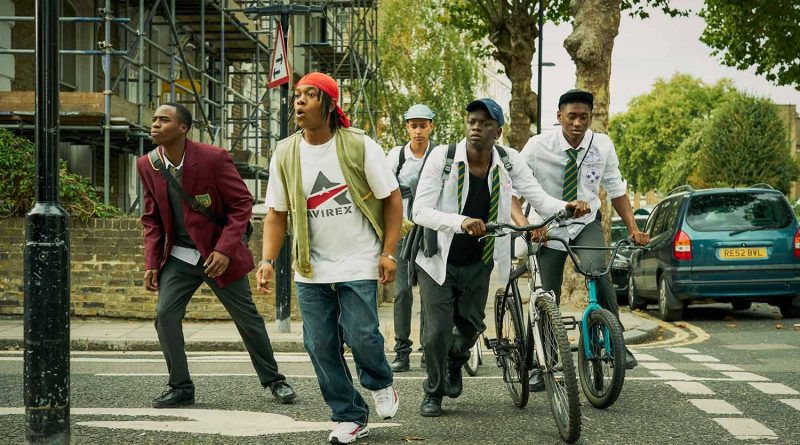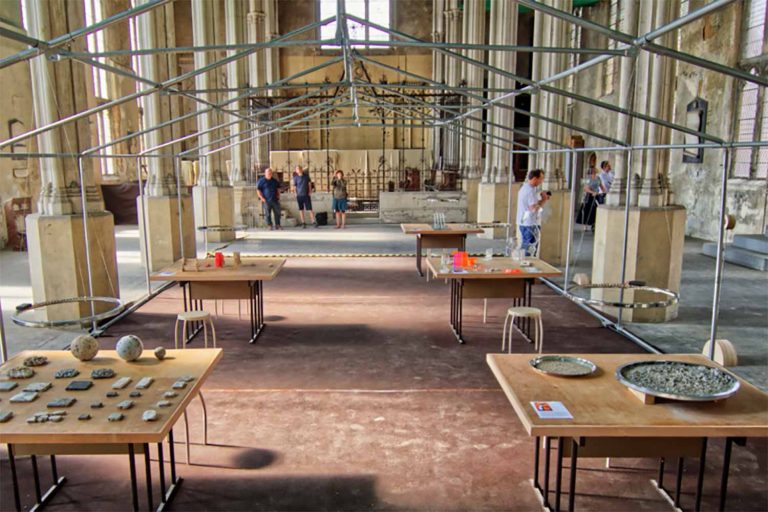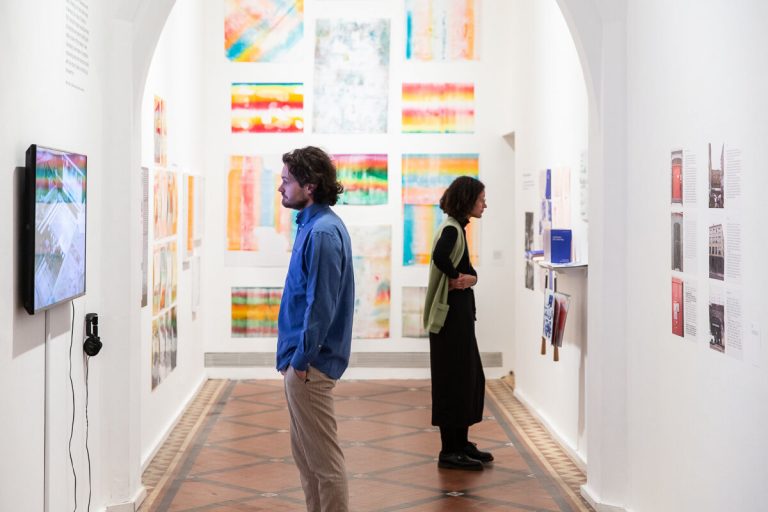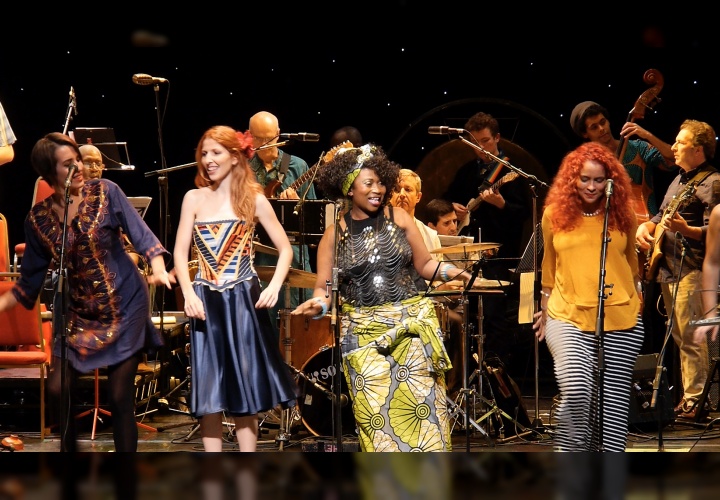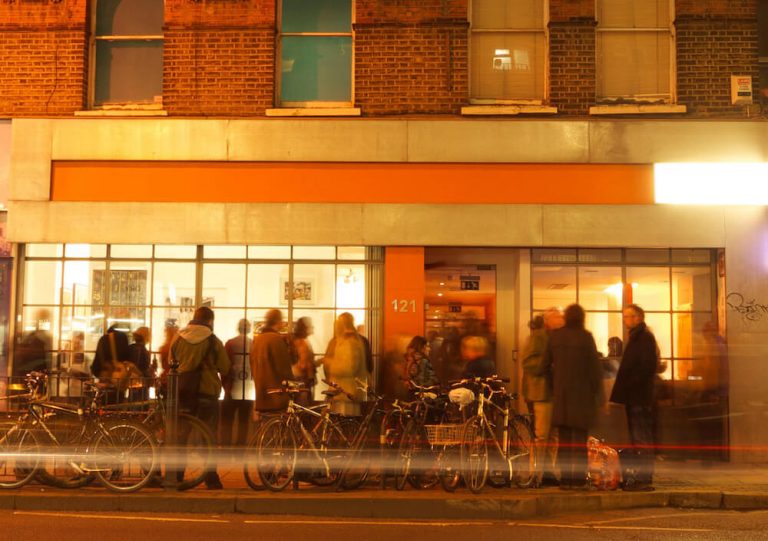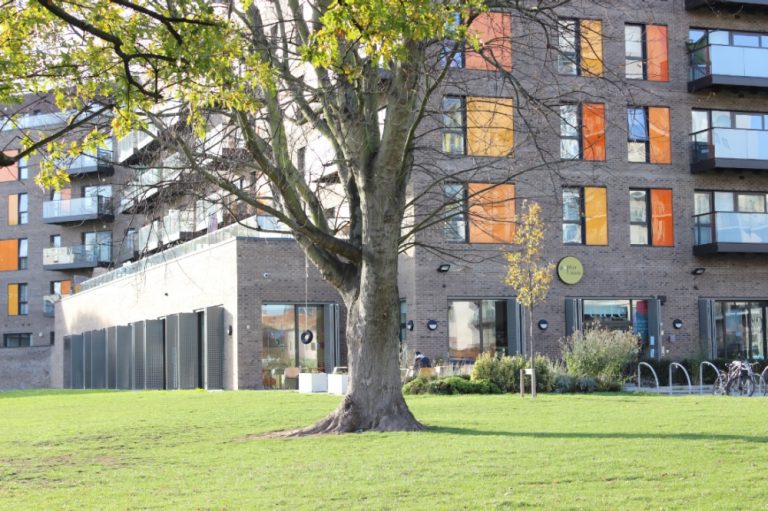Screenwriter Theresa Ikoko on her new BBC 3 series: Grime Kids
Theresa Ikoko’s joyous coming-of-age drama celebrates the stories of brotherhood behind Bow’s grime revolution.
Growing up in East London in the wake of Bow’s grime revolution, screenwriter Theresa Ikoko confesses she wasn’t that in touch with the (140 bpm) grime beats heard on the airwaves of the East End in the early noughties.
Now, Ikoko – the award-winning writer of Hackney’s coming-of-age drama Rocks – has written the screenplay for BBC Three’s Grime Kids and knows just about enough about dubplates and FM dials to set up her own pirate radio station.
The series, which will be released on Monday 13 November, was loosely inspired by the non-fiction book of the same name written by DJ Target, grime pioneer and member of the influential collective, Roll Deep.
Target’s first-person book tells an insider’s account of the evolution of grime, which catapulted the likes of Wiley and Dizzee Rascal from Bow’s Crossways Estate aka the three flats to the international stage.
The series is a fictional version of events set in grime’s spiritual home in the noughties. An ode to East London, It features scenes of Roman Road and its infamous former record shop, Rhythm Divison, that locals will recognise immediately.
I’m just really in awe of how brave and resilient and defiant they were and how much joy they threaded into the fabric of being young and British.
Theresa Ikoko
Ikoko worked closely with DJ Target and fellow grime innovator, Geeneus, to understand the genres’ musical technicalities. Cameos from grime artists, D double E and Shystie, nod to the genre’s endurance in East London today.
But the series’ main focus is the stories of friendship and community behind the music, with the first episode seeing the five protagonists thrown out of their first-ever East London club night, setting the scene for their coming-of-age summer.
As Ikoko says: ‘I wanted to take [the series] in a slightly different direction and tell a story about friends, brotherhood and community, which is what I fell in love with when I spoke to people who grew up in the area at that time.’
As a writer, Ikoko says she feels indebted to the path paved by the pirate radio MCs and grime artists from minority backgrounds who had to fight for their right to be listened to.
‘There is something immensely brave about the passions and risks that some of them would take to be heard,’ says Ikoko: ‘A lot of them were first-generation immigrants so they were really doing things for the first time.’
Geeneus, who co-founded Rinse FM is even rumoured to have dangled off rooftops and down lift shafts in Bow just to get his pirate radio station on the airwaves. ‘If you threatened to dangle me out the window to read my script, I would tell you to pack it in!’ laughs Ikoko.
‘I’m just really in awe of how brave and resilient and defiant they were and how much joy they threaded into the fabric of being young and British,’ she adds.
The series is suffused with a sense of youthful joy that runs through Ikoko’s previous work. In the first episode, the sun beams down on the Roman, and critics might say that such a positive portrayal obscures the darker realities of growing up on an East London council estate in the early 2000s.
But for Ikoko: ‘This is just the story of five boys … And for so many stories, particularly black stories, there is this idea that we have one story per theme, one story per area, or one story per estate. But we’re not a homogenous group, and we don’t have homogenous experiences.’
Researching the legislation governing British youth culture in the 90s, Ikoko discovered a deep sense of fear of giving people a voice and an audience that would listen to that voice: ‘And I think it’s quite obvious that those fears were embedded in racism and different prejudices,’ she says.
Grime Kids celebrates the young East Londoners who dared to say: ‘I deserve to be heard.’ the grime artists who have since become the bedrock of British music, fashion, community and culture.
Yet the tale is also a universal one of what it means to be a kid and grow up. In Ikoko’s words: ‘The focus is on telling the stories that fill my heart and I hope that people enjoy them and see themselves in them and be loved by them.’
If you enjoyed reading this article, you might like our piece about Lady Shocker, the ‘first lady’ of Bow’s Wolfpack grime crew.

